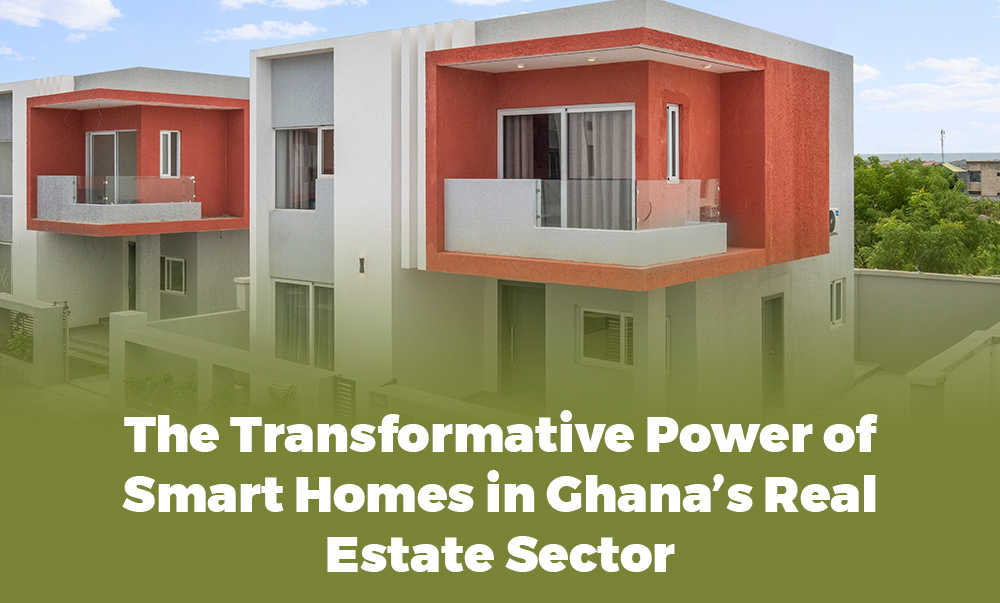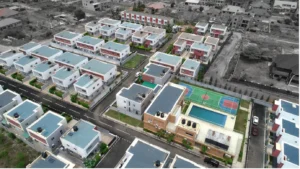The Ghanaian real estate landscape is undergoing a remarkable transformation, and at the heart of this evolution lies the burgeoning adoption of smart home technology. In recent years, smart homes have emerged as a game-changer, offering numerous benefits that are reshaping the way Ghanaians live and interact with their homes. In this article, we delve into the myriad advantages of smart home technology, exploring its impact on security, energy efficiency, convenience, and even property values.
Enhanced Security with Smart Home Systems
One of the most striking advantages of smart home technology in Ghana is the substantial enhancement it brings to home security. Automated security systems, equipped with cameras, motion sensors, and smart locks, have become the frontline guardians of homes across the nation. What sets these systems apart is their ability to provide remote monitoring and control. Regardless of where homeowners are, they can access real-time feeds, receive instant notifications, and even remotely lock or unlock doors. This level of control deters potential threats and offers unparalleled peace of mind.
Improved Energy Efficiency for Sustainable Living
Ghana, like many other nations, is increasingly mindful of energy consumption and its environmental impact. Smart home solutions have emerged as a potent weapon in the battle for energy efficiency. Central to this is the integration of smart meters that enable homeowners to gain real-time insights into their energy usage. Armed with this data, residents can make informed decisions to optimize consumption, ultimately leading to substantial cost savings and a more sustainable way of living. Smart thermostats, lighting systems, and appliances further contribute to these savings by allowing users to remotely manage energy usage according to their preferences and needs.
Personalized Comfort and Unprecedented Convenience
Imagine effortlessly tailoring your living environment to suit your every preference. This is precisely what home automation, a core feature of smart homes, offers. Smart thermostats ensure that your home is always at the perfect temperature, and lighting systems can adapt to your mood and schedule. With simple voice commands or smartphone taps, you can control various aspects of your home, from adjusting the temperature to brewing your morning coffee. This level of personalization not only maximizes comfort but also minimizes energy wastage, promoting a greener lifestyle.
The Integration of Artificial Intelligence (AI)
Artificial Intelligence (AI) is at the forefront of the smart home revolution in Ghana. AI technologies, such as voice assistants and machine learning algorithms, have ushered in a new era of responsiveness and adaptability. These systems can learn your behavior and preferences, adjusting your home’s settings accordingly. For instance, your smart home can recognize your morning routine and proactively prepare your living space for the day ahead. AI continuously learns and improves, optimizing energy management and reducing costs over time.
The Role of the Internet of Things (IoT)
The Internet of Things (IoT) is a driving force behind the transformation of Ghana’s real estate sector. IoT devices connect various aspects of a home, allowing homeowners to control them remotely. Smart thermostats adjust temperatures as you approach home, and IoT-enabled security systems provide real-time monitoring and protection. These innovations enhance functionality and contribute to a more sustainable lifestyle. IoT technology can even integrate renewable energy sources, such as solar panels, reducing reliance on traditional grids and minimizing the environmental footprint.
The Impact on Property Values
The adoption of smart home technology in Ghana isn’t just about convenience; it’s also about investment. Properties equipped with smart features are increasingly appealing to buyers and renters alike. The ability to remotely manage security, energy, and comfort is a significant selling point. Consequently, property values have experienced a noticeable uptick. Buyers are willing to pay a premium for homes that offer these benefits, recognizing that they represent not only an upgrade in living but also a sound investment.
Challenges and Opportunities
While the path to smart homes in Ghana is promising, it isn’t without its challenges. Robust infrastructure and reliable internet connectivity remain vital for seamless smart home operation. The interoperability of devices from different manufacturers is another hurdle. However, these challenges are accompanied by opportunities, such as significant energy savings and efficiency gains. Continued developments in AI and IoT hold the promise of even more exciting possibilities.
The Future of Smart Homes in Ghana
In the coming years, the growth of smart homes in Ghana’s real estate sector will continue to surge. Voice assistants like Amazon Alexa and Google Assistant will integrate even further into daily life. Security systems will become more advanced and capable. These trends, driven by the desire for convenience and security, will shape the future of living in Ghana.
Smart homes are reshaping the real estate landscape in Ghana, offering unprecedented security, energy efficiency, convenience, and property value appreciation. Challenges are being met with innovative solutions, and the future promises even greater integration and enhancement of smart home technology. As Ghana continues its journey towards a more connected future, smart homes are poised to play a pivotal role in defining the way Ghanaians live and thrive in their homes.


